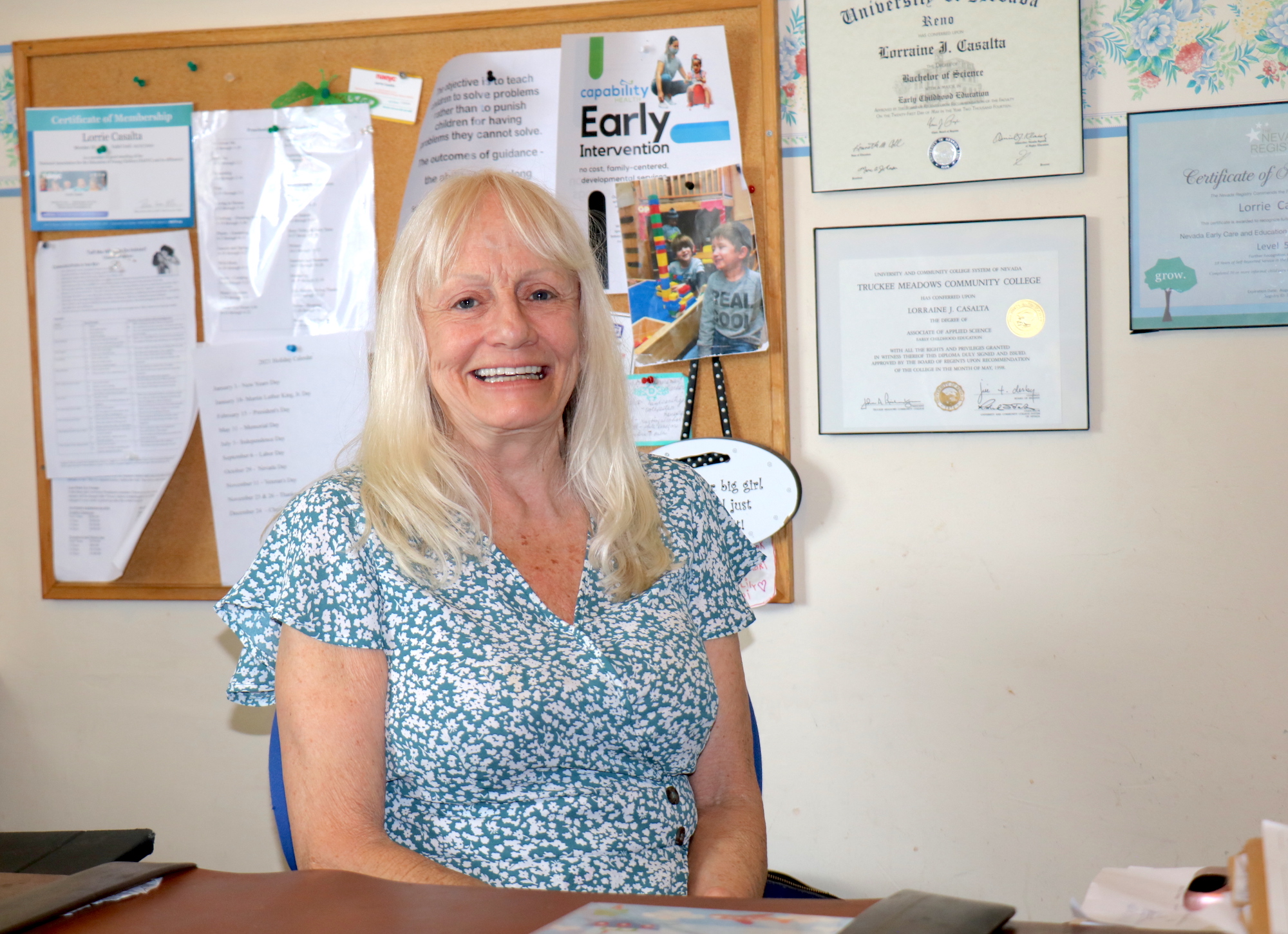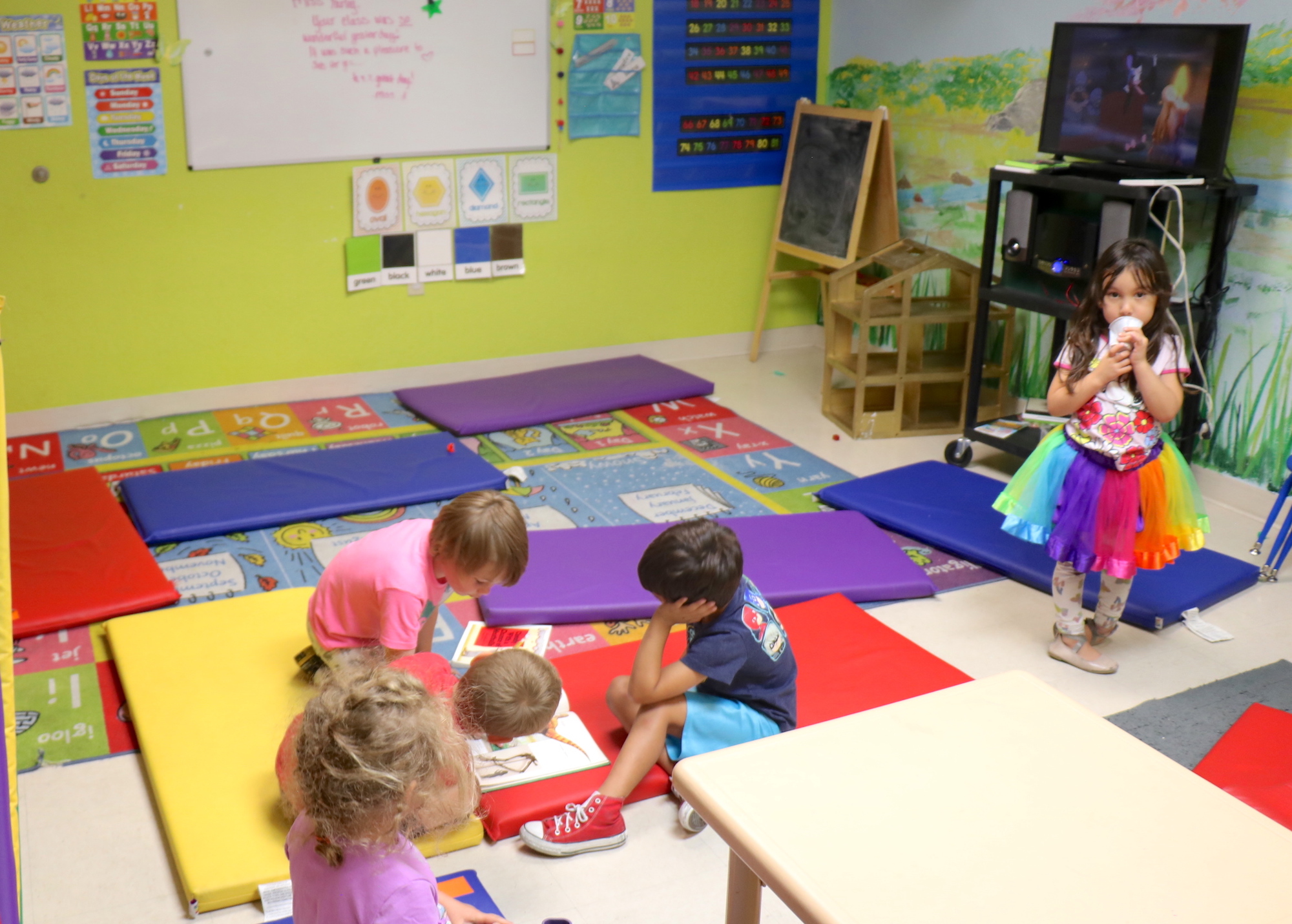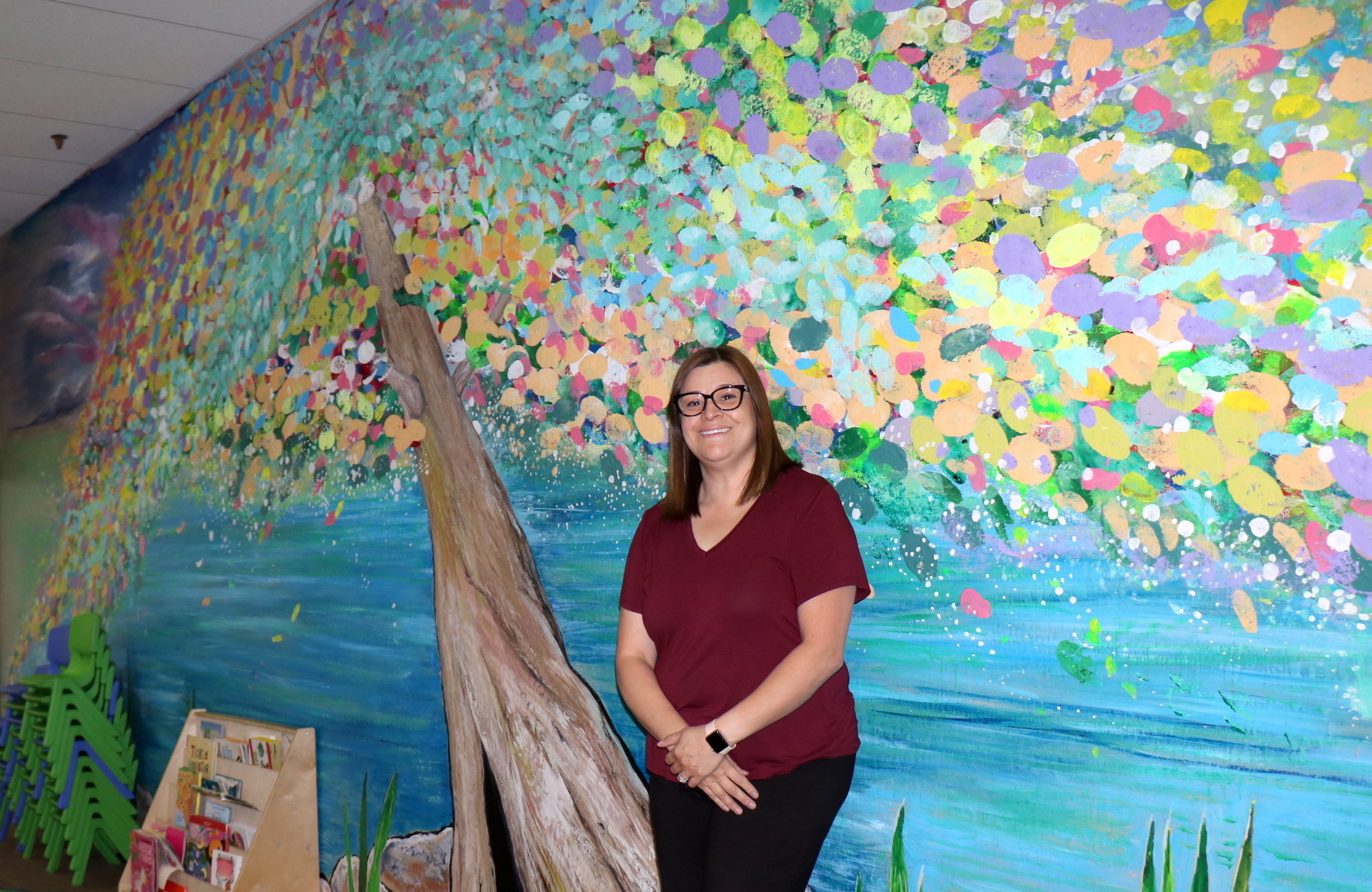Teachers at Little Bear Preschool and Childcare in Sparks organize books for the children to read on Monday, July 19. Photo by Kaleb Roedel.
 Lorrie Casalta, executive director of Little Bear Preschool and Childcare in Sparks, sits in her office on Monday, July 19. Photo: Kaleb M. Roedel / NNBW
Lorrie Casalta, executive director of Little Bear Preschool and Childcare in Sparks, sits in her office on Monday, July 19. Photo: Kaleb M. Roedel / NNBW
 Children interact in a classroom at Crosswalk Preschool in Northwest Reno on Friday, July 23. Photo: Kaleb M. Roedel / NNBW
Children interact in a classroom at Crosswalk Preschool in Northwest Reno on Friday, July 23. Photo: Kaleb M. Roedel / NNBW
 Mary Jones, director of Crosswalk Preschool in Northwest Reno, stands inside their main playroom on Friday, July 23. Photo: Kaleb M. Roedel / NNBW
Mary Jones, director of Crosswalk Preschool in Northwest Reno, stands inside their main playroom on Friday, July 23. Photo: Kaleb M. Roedel / NNBW